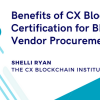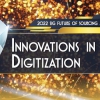For healthcare providers operating in an increasingly competitive and demanding environment, leveraging technology to analyze data and gain contextualized insight represents the key to success, if not survival. To deliver services effectively, providers must have real-time access to detailed information at the point of care. An emergency room physician treating a stroke victim, for example, needs instant access to lab results and the patient’s health history to deliver the best treatment. From an operational standpoint, administrators need consolidated, accurate and up-to-date account and insurance information (as anyone who’s dealt with healthcare paperwork can attest).
But efficient management of basic patient information – while a formidable challenge in and of itself – is just the beginning. The healthcare industry faces increasing pressure to demonstrate the effectiveness of wellness programs in improving outcomes and reducing demand for health services. That means providers must assess myriad cause/effect variables and integrate data from a growing number of sources such as smart sensors on medical devices and wearables that continually collect, share and analyze data. And as the market becomes more consumer-centric, patients increasingly demand – and expect – seamless digital services and user-friendly apps accessible via mobile devices.
These imperatives require aggregating data from multiple sources that include general and specialist practitioners, insurance companies and pharmacies, as well as increasingly sophisticated medical equipment and personal devices. Indeed, the world generates an estimated 750 quadrillion bytes of health-related data every day – a volume that will only grow as Internet of Things (IoT) capabilities take root.
In this environment, healthcare providers face the dual challenge of wrapping their arms around the data they already have, while at the same time establishing an operational foundation to support the integration of exponentially growing volumes of new data in the future.
Regarding existing data, the reality is that most healthcare providers struggle to meet even basic requirements around managing patient information, accessing data at the point of care and addressing regulator demands. The fundamental issue is a disconnect between internal systems, operational towers and databases. While many industries face the challenge of integrating a wide range of data sources, the problem is particularly acute in healthcare, given its traditional reliance on closed systems and emphasis on patient information security. Too often, healthcare providers struggle to access data from isolated towers that operate as distinct entities, with different standards and inefficient processes. Legacy systems contain vast volumes of unstructured data that, while difficult to access, is essential to managing patient records and delivering care. Mergers and acquisitions compound these issues, as the process of absorbing new entities is ineffective and often fails to deliver the anticipated efficiencies.
To address these challenges, healthcare providers today typically deploy teams of programmers to write middleware to connect information silos and integrate legacy systems and new applications. The process is arduous, complex and time-consuming, and requires customized connections for each new point of communication, as well as coding and development work for orchestration, security and deployment.
Healthcare industry experts increasingly view Application Programming Interface (API) tools based on open source standards as an effective alternative to this traditional approach. Equipped with preconfigured code snippets that fully define how applications communicate with one another, open source API tools bypass the tedious process of coding connections on a customized, one-off basis, and instead enable plug-and-play connectivity between systems.
Despite these advantages, the healthcare industry has been slow to embrace API tools. The main concern is around security – the idea of seamlessly and easily connecting data from myriad sources intuitively seem risky. Industry studies, however, have found that well-managed APIs are secure, and are in fact more secure than traditional ad hoc and customized interfaces.
By enabling access to a wide range of different data sources, APIs can provide the essential foundation healthcare providers needed to support the new age of delivery – one characterized by seamless management of patient information and unprecedented levels of insight driven by continuous and increasingly autonomic data collection and analysis. And, by connecting systems in a controlled, structured and secure manner, APIs can help reconcile the fundamental conflict plaguing healthcare information management; namely, the need to reconcile easy access to vast volumes of data with rigorously protected patient information.
More specifically, APIs facilitate access to the “right” data – data that can yield meaningful insight into operations or patient care. This is particularly important to address HIPAA requirements that allow providers access to certain types of data and restrict access to others.
In terms of a sourcing and technology partner strategy, healthcare providers should seek API expertise complemented by capabilities around change management, process optimization and Agile methodology. Achieving optimal benefits from API tools requires process improvement, including redesign and the deployment of automation tools.
Agile, meanwhile, is characterized by flexibility, responsiveness and engagement with business requirements – attributes that are essential in today’s rapidly evolving healthcare environment.







